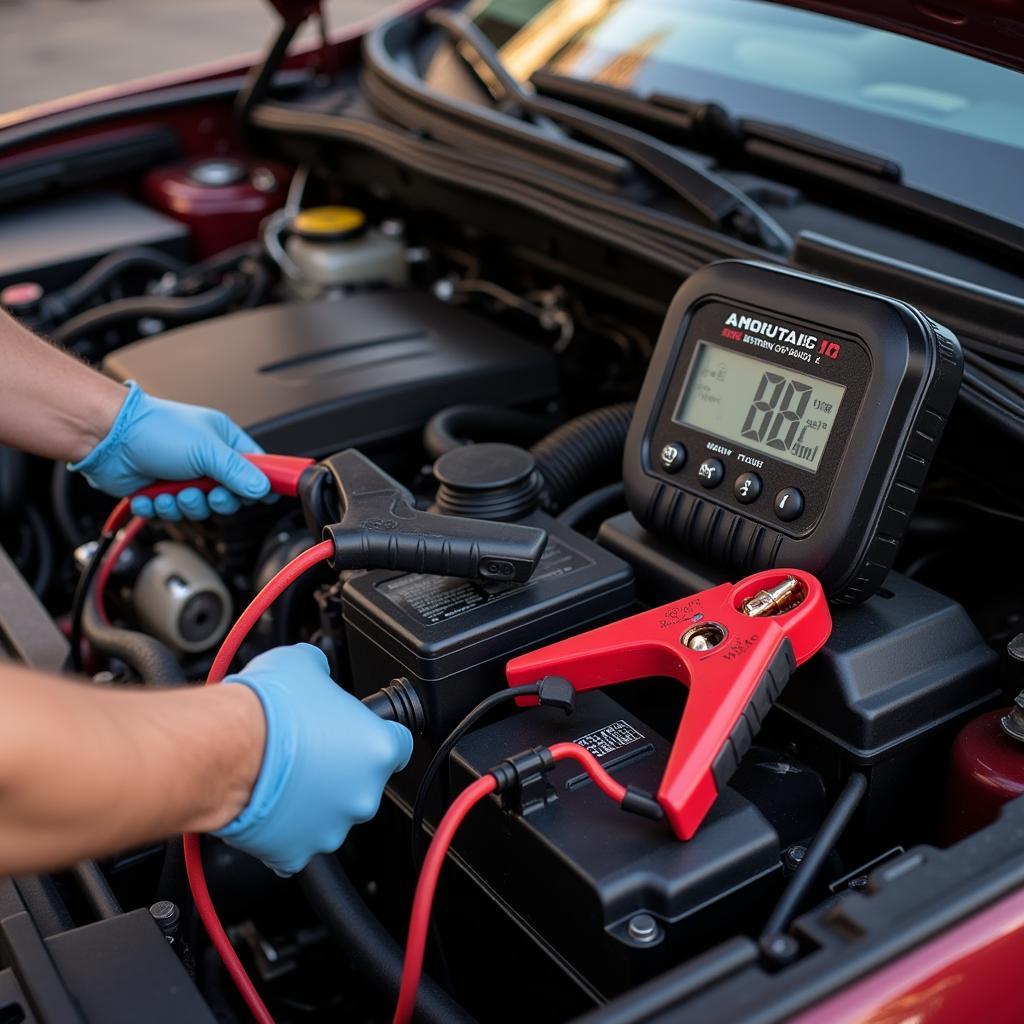Transmission problems can be a real headache for car owners. Whether you’re experiencing slipping gears, rough shifting, or strange noises, understanding the potential causes and solutions is crucial. This guide dives deep into the world of car transmission issues, providing valuable insights for owners, repair shop managers, and automotive technicians.
Understanding Common Transmission Problems
Transmission issues manifest in various ways, and identifying the symptoms is the first step towards a solution. Common problems include:
- Slipping gears: This feels like the engine revs up but the car doesn’t accelerate as expected.
- Rough shifting: You might experience difficulty shifting between gears or a jarring sensation during gear changes.
- Delayed engagement: A pause between shifting into gear and the transmission actually engaging.
- Whining, humming, or clunking noises: Unusual sounds coming from the transmission are often a sign of trouble.
- Fluid leaks: Check for red or brown fluid leaks under your vehicle.
- Burning smell: A burning smell can indicate overheating transmission fluid.
Diagnosing the Root Cause of Transmission Problems
Pinpointing the exact cause of transmission problems requires a systematic approach.
Checking the Transmission Fluid
One of the easiest checks you can perform is inspecting the transmission fluid. Ensure the fluid level is correct and check its color and smell. Burnt or dark fluid suggests potential internal damage. Low fluid levels can also lead to significant problems.
Electronic Diagnostics
Modern cars often store diagnostic codes related to transmission problems. Using a diagnostic scanner can reveal these codes and provide valuable clues about the issue.
Mechanical Inspection
For a more thorough diagnosis, a mechanical inspection might be necessary. This could involve checking the transmission pan for metal shavings, inspecting the valve body, and assessing the condition of the clutch packs.
Transmission Problems Car: Repair and Maintenance Strategies
Addressing transmission problems effectively depends on the specific issue.
Fluid Change and Filter Replacement
Regular fluid changes and filter replacements are essential for maintaining transmission health. This helps prevent damage and extends the lifespan of the transmission.
Component Repair or Replacement
Depending on the diagnosis, specific components like solenoids, sensors, or even the entire transmission might need repair or replacement.
Transmission Rebuild or Replacement
In cases of severe damage, a transmission rebuild or replacement might be the most viable option. While costly, this ensures proper functioning and avoids further complications.
What Causes Transmission Problems in a Car?
Several factors can contribute to transmission problems.
Low Fluid Levels
Insufficient transmission fluid can cause overheating, wear, and damage to internal components.
Worn Clutch Packs
The clutch packs inside the transmission are responsible for engaging and disengaging gears. Over time, these can wear down, leading to slipping or rough shifting.
Faulty Solenoids
Solenoids control the flow of transmission fluid. Malfunctioning solenoids can disrupt gear changes and cause other problems.
Damaged Torque Converter
The torque converter connects the engine to the transmission. Damage to this component can lead to various transmission issues.
Preventing Transmission Problems
Proactive maintenance is key to avoiding transmission troubles.
- Regular Fluid Changes: Follow the manufacturer’s recommended intervals for transmission fluid and filter changes.
- Avoid Aggressive Driving: Harsh acceleration and sudden stops can put extra stress on the transmission.
- Check for Leaks: Regularly inspect for any fluid leaks and address them promptly.
- Proper Towing: Adhere to the vehicle’s towing capacity to avoid overloading the transmission.
Transmission Problems Car: Get Expert Help
“Regular maintenance is the best way to prevent costly transmission repairs,” says John Miller, a certified automotive technician with over 20 years of experience. He adds, “Ignoring early warning signs can lead to significant damage and expensive repairs down the road.” Another expert, Sarah Johnson, a transmission specialist, advises, “If you experience any unusual noises or shifting problems, get it checked by a qualified technician immediately.”
Conclusion
Transmission Problems Car issues can range from minor annoyances to major malfunctions. By understanding the common symptoms, causes, and solutions, you can effectively address these problems and keep your car running smoothly. Don’t hesitate to reach out for expert help if you encounter any transmission issues. Connect with AutoTipPro at +1 (641) 206-8880 or visit our office at 500 N St Mary’s St, San Antonio, TX 78205, United States.






Leave a Reply